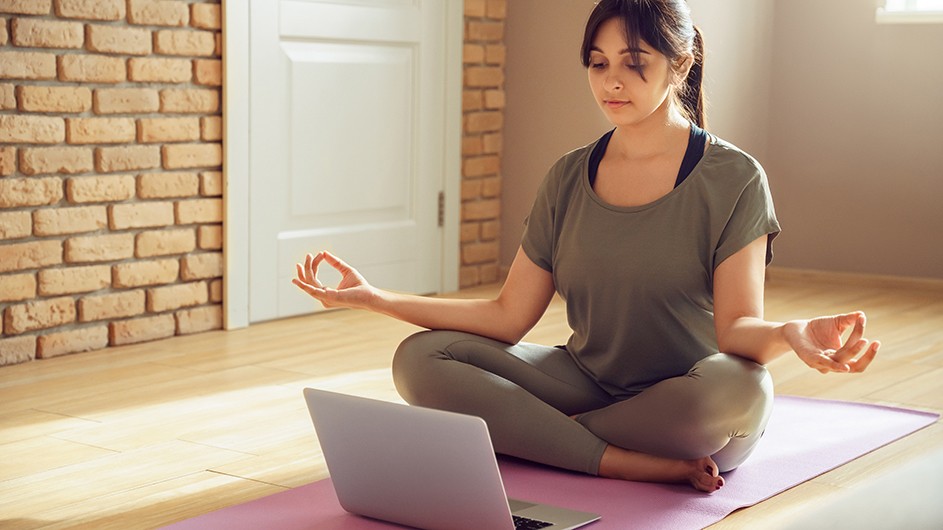Can Meditation and Yoga Help Reduce Anxiety Related to COVID-19?
A study at Columbia University seeks to address heightened stress during the pandemic.

The pandemic has been difficult for everyone. According to the Centers for Disease Control and Prevention, one in five Americans report struggling with mental or behavioral health issues associated with COVID-19, including anxiety, depression, increased substance use, and suicidal thoughts. The highest burden of distress has been reported by the younger generation (ages 18-29) and minority communities.
To address these disturbing numbers, Columbia University’s Department of Psychiatry and the New York State Psychiatric Institute have launched an online study to assess the benefits of meditation and yoga for reducing anxiety and increasing resilience during this time of heightened fear and despair related to COVID-19.
The eight-week study, open to participants through June 2021, targets people who have not been infected with COVID-19, but who have experienced heightened anxiety because of it: fear of infection, illness or death of loved ones, loss of income or housing, worries about how to feed the family, despair due to isolation, or disruption in career path.
Why meditation and yoga?
Meditation has been with us for thousands of years, often as part of a spiritual practice. But in recent years, mindfulness—and yoga—have become popular ways to help people manage stress and improve overall well-being. Mindfulness meditation encourages attention to the present moment, often by focusing on breath to modulate emotions. Both meditation and yoga, which includes physical postures and breathing exercises, are useful for treating a variety of medical and psychiatric disorders. They also generally enhance coping skills, a skill set we all need to strengthen.
As researchers, we want to test whether a low-cost, online mind-body study can help reduce anxiety during a global pandemic; as clinicians, we want to make sure everyone who participates receives help. As part of the trial, everyone receives anxiety-reduction training strategies and education materials based on proven cognitive-behavioral techniques. An additional two-thirds of participants also receive a mind-body therapy that includes either meditation for stress reduction or kundalini yoga, which adds stretching movements to the practice of yoga.
So far, more than 2,000 people, ages 18-70, have contacted us from places like Australia, Canada, Germany, India, Israel, Mexico, and the United Kingdom. Of particular interest to us is that only one-third of those who have enrolled or expressed interest had experience with meditation before and fewer than 5 percent had ever practiced kundalini yoga. This yearning for help and willingness to try new things are good signs.
Through this study, we hope to determine whether anxiety in the context of COVID-19 can be reduced through web-based, self-guided interventions that combine meditation-based and anxiety-reduction practice and training. The results have broad public health implications, potentially identifying an inexpensive, easily disseminated, and beneficial approach to addressing anxiety in times of public health crises.
If you’re interested in learning more or participating in the study, visit Columbia Psychiatry’s information page.

Brian A. Fallon, MD, MPH, is the director of the Center for Neuroinflammatory and Somatic Disorders and director of the Lyme and Tick-Borne Diseases Research Center at Columbia University. He is the principal investigator on the study.
This column is editorially independent of Columbia News.